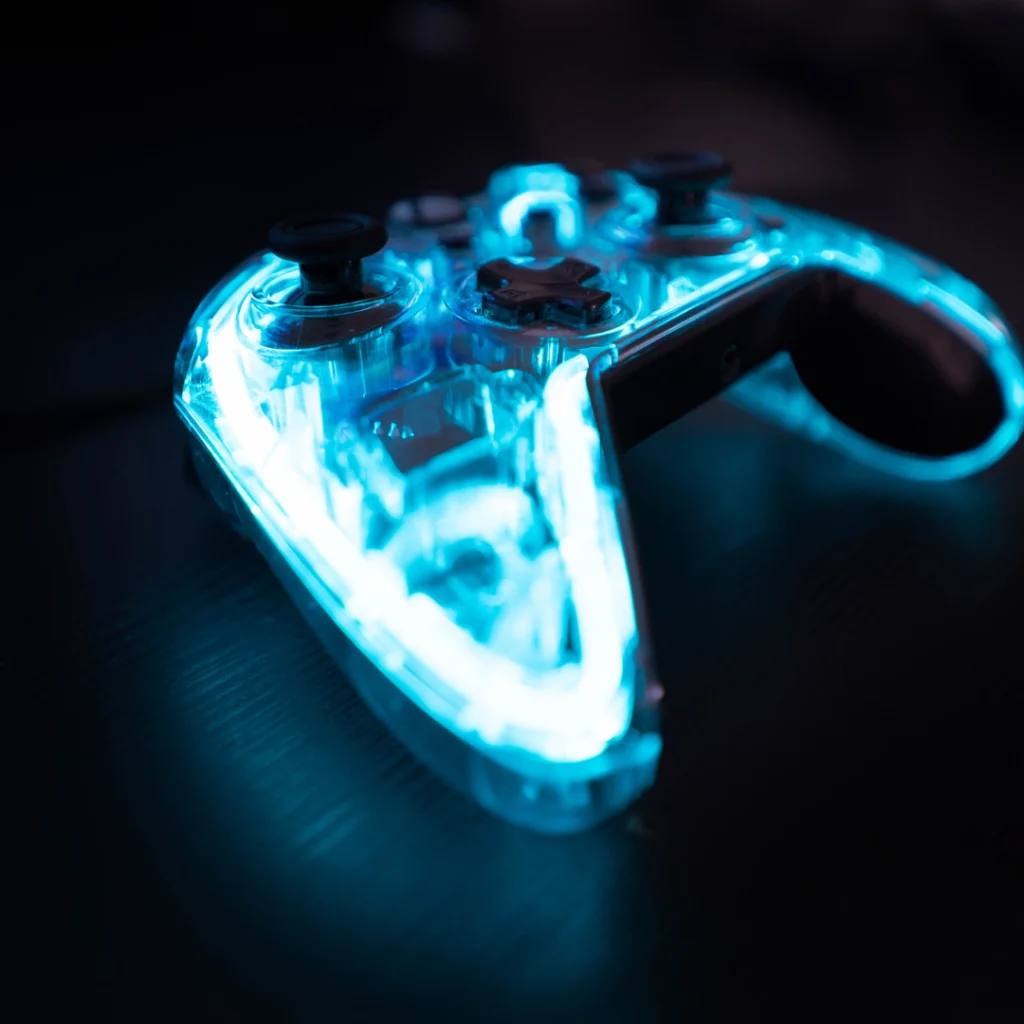Video game development is an intricate process, involving groundbreaking ideas that reshape how players interact with digital worlds. Just like in other industries, game developers seek to protect their unique technologies and innovations through patents. While patenting is a standard business practice, its enforcement in the gaming industry has generated backlash from the gaming community. Players and developers alike have voiced concerns over whether patents stifle creativity and innovation, or if they are necessary safeguards for original ideas.
This blog post will explore some notable examples of video game patents and the community response to their enforcement.
Why Do Gamers Dislike Patents?
Game development is often driven by tight deadlines, shifting market demands, and narrow profit margins. A typical triple-A game or, a game produced by a major distributor, can take anywhere from two to five years to develop, while indie titles may take six months to two years. These long timelines can cause problems if a core gameplay mechanic is later alleged to be patented by others, leaving developers scrambling to make changes or face legal issues.
Moreover, video games are highly interconnected. Developers often draw inspiration from older titles, paying homage to previous games or building upon established mechanics. Patent enforcement in this environment becomes tricky—many games are built on the foundations of their predecessors, and a single patented idea could force developers to abandon their vision.
With the rise of digital distribution, many solo developers and small indie studios have flourished. However, without large corporate backing, they often struggle to navigate the complexities of intellectual property, leaving them vulnerable to patent disputes. To many gamers and indie developers, patents can feel like unnecessary barriers that prevent innovation in an industry that thrives on creativity.
Notable Video Game Patents
1. Apex Legends’ Ping System
Respawn Entertainment’s Apex Legends introduced a revolutionary in-game communication system known as the “ping system,” offering a non-verbal way for players to interact with each other. Instead of relying on voice chat, players could use pings to highlight enemy locations, suggest loot areas, or direct teammates’ movements. It was praised for its accessibility and ease of use.
In 2019, Electronic Arts (EA) patented this system (US Patent No. 11,097,189), raising concerns that it might prevent other developers from creating similar features. Given that team-based communication is essential in many games, the gaming community feared that EA’s patent would stifle innovation in this area. In response to the backlash, EA decided to license the patent for free to other developers.
2. Middle-Earth: Shadow of Mordor’s Nemesis System
Warner Bros. Interactive patented the Nemesis system from Middle-Earth: Shadow of Mordor, a dynamic mechanic where enemies remember past encounters with the player, shaping future interactions. This unique mechanic was highly praised for enhancing player immersion.
Warner Bros. patented the system in 2021 (US Patent No. 10,926,179), sparking outrage from both gamers and developers. Many believed that the patent would limit future innovation in emergent gameplay and storytelling. Critics argued that patenting such a core mechanic could prevent other studios from building upon it to create richer, more complex games.
3. SEGA’s Crazy Taxi Arrow Navigation System
The Crazy Taxi navigation system, patented by SEGA, uses a dynamic on-screen arrow that points players to their next destination, a core element of the arcade-style gameplay. SEGA patented this feature (US Patent No. 6,200,138) in 2001.
During its enforcement period, SEGA reportedly went after developers who used similar navigation tools, creating a chilling effect within the industry. Critics argued that the arrow, while useful, was too basic a mechanic to warrant patent protection. The patent has since expired, but the controversy surrounding it left a lasting impact on discussions of patent overreach in gaming.
4. Nintendo’s Pokémon Monster-Catching Mechanic
The monster-catching mechanic at the heart of Pokémon games was patented by Nintendo. Nintendo patented aspects of this mechanic (JP Patent No. 7,545,191 and US Patent Application No. 20230191255), which raised concerns within the monster-collecting genre. The broad scope of the patent made some worry that it could hinder other developers from creating similar games.
Recently, Nintendo has enforced its Japanese patent against Palworld by Pocketpair, igniting further outrage from fans who see the patent as overly restrictive in a genre that thrives on variation and competition.
5. Mass Effect’s Dialogue Wheel
Bioware, the developer behind Mass Effect, implemented an innovative dialogue wheel system that streamlined in-game conversations. This system streamlined player interactions while keeping the conversation flow intact. In 2023, EA patented the system (US Patent No. 11,648,472).
While praised for its innovation, the patent sparked debate about whether dialogue systems, a core element in many RPGs, should be protected. Critics argue that restricting the use of such systems could limit storytelling advancements in other games.
6. Eternal Darkness’ Sanity Meter
Eternal Darkness: Sanity’s Requiem, developed by Silicon Knights, introduced a groundbreaking sanity meter that altered gameplay based on the character’s mental state. The lower the sanity meter, the more distorted the gameplay became, with hallucinations and other psychological effects taking hold. Silicon Knights patented this system (US Patent No. 6,935,954), which some argued prevented other horror games from incorporating similar mechanics.
The sanity meter is often cited as one of the most innovative mechanics in the horror genre, but its limited use in other titles due to the patent has frustrated gamers who believe it could enhance many other games.
The Tension Between Patents and Innovation
The tension between protecting intellectual property and fostering creativity is a challenging issue for the gaming industry. Patents can be vital for safeguarding unique inventions, yet their application in video games often feels at odds with the industry’s collaborative nature. Many developers believe that core gameplay mechanics should remain open for others to build upon, fostering collective innovation across the industry.
Nevertheless, patents remain an important part of the business in gaming. Game developers continue to file new patents and enforce existing ones to protect their original ideas from competitors. This trend shows no signs of slowing down, as companies seek to safeguard their investments in a highly competitive market.
Conclusion
While the gaming community often views patent enforcement as restrictive, the reality is that intellectual property protection is here to stay. Balancing the need for IP protection with the desire to promote creativity will continue to be a delicate issue for developers. For companies looking to protect their game’s unique mechanics, having the right insurance coverage is crucial.
At IPISC, we’ve been helping businesses defend and enforce assets and intellectual property for over 30 years. Whether you’re concerned about protecting your rights or need protection from potential infringement claims, we’re here to help. Learn more about our solutions here.


